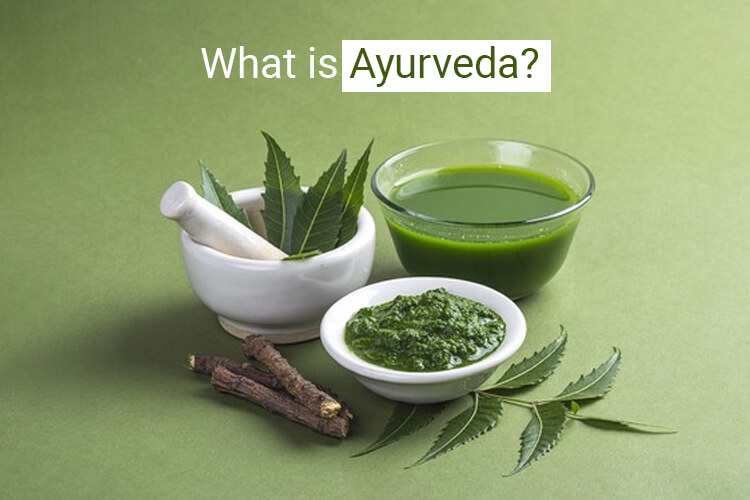One of the oldest “whole-body” (or holistic) treatment systems in the world is ayurvedic medicine, or “Ayurveda” for short. It was created in India more than 3,000 years ago.
Over the course of more than two millennia, ayurvedic medicines have changed and evolved. Herbal remedies, specific diets, meditation, yoga, massage, laxatives, enemas, and medical oils are examples of therapies. Typically, complex plant components, minerals, and metals comprise the foundation of ayurvedic remedies (perhaps under the influence of early Indian alchemy or rasashastra). Additionally, surgical procedures like rhinoplasty, kidney stone removal, sutures, and foreign object removal were taught in ancient Ayurvedic writings.
The primary writings of classical Ayurveda begin with descriptions of the passage of medicinal knowledge from gods to sages, then to human doctors. The Sushruta Samhita (Sushruta’s Compendium) is published as the teachings of Dhanvantari, the Hindu god of Ayurveda who took on the form of King Divodsa of Varanasi and spoke to a group of physicians, among them Sushruta.

Dosha balance is emphasised in Ayurvedic teachings, and it is seen detrimental and likely to cause illness to repress one’s natural inclinations. Vta, pitta, and kapha are the three basic doshas, and according to Ayurvedic texts, the balance (Skt. smyatva) of the doshas leads to health while the imbalance (viamatva) leads to disease. Eight canonical components make up medicine according to Ayurvedic treatises. Since at least the start of the common era, practitioners of ayurveda have created a variety of medical formulations and surgical techniques.
There isn’t sufficient proof that Ayurveda can effectively treat or prevent cancer. Lead, mercury, and arsenic, which are known to be toxic to humans, have been detected in some Ayurvedic remedies.
It is predicated on the idea that mental, physical, and spiritual wellness are intricately entwined. Its major objective is to promote health, not to treat illness. However, some treatments may target particular health issues.
It is regarded as supplementary and alternative medicine in the United States (CAM).

The Power of Ayurveda in Your Life
All things in the universe, whether they are alive or dead, are connected, according to CAM treatment practitioners. You are in good health if your mind, body, and soul are in harmony with the cosmos. You become ill when something upsets this balance. This equilibrium can be thrown off by a variety of factors, such as genetic or congenital disorders, wounds, changes in the weather and seasons, becoming older, and your emotions.
Ayurvedic practitioners say that the five fundamental elements of the universe—space, air, fire, water, and earth—make up every living thing.
Three life forces or energies known as doshas are created when these unite in the human body. They manage how your body functions.
Vata Dosha
This is thought to be the most potent of the three doshas by those who follow Ayurveda. It regulates really fundamental bodily processes including cell division. It also regulates your ability to expel waste through your intestines, as well as your mind, breathing, blood flow, and heart function. It can be ruined by things like eating too soon after a meal, feeling anxiety or grief, or staying up too late.
If the vata dosha dominates your body, you may be more susceptible to ailments like rheumatoid arthritis, anxiety, asthma, and heart disease.
Pitta Dosha
This energy regulates your appetite-related hormones, digestion, and metabolism (how efficiently you break down food). Eating sour or spicy food and spending too much time in the sun can both interfere with it.
If it’s your primary source of energy, you may be more susceptible to infections, heart problems, high blood pressure, and diseases like Crohn’s disease.
Kapha Dosha
This vital force regulates your immune system, weight, weight gain, and body strength and stability.
Sleeping throughout the day, consuming an excessive amount of sweets, and ingesting or consuming an excessive amount of salty or hydrating substances can all interfere with it.
If it dominates your life, medical professionals think you could have cancer, diabetes, nausea after eating, obesity, and breathing diseases like asthma.
Ayurvedic Medicine
You will get a personalised treatment plan developed by an Ayurvedic professional. They’ll consider the harmony between all three of these factors, as well as your particular physical and emotional make-up.
Treatment is to rid your body of undigested food, which might remain there and cause illness. The “panchakarma” purification procedure aims to lessen your symptoms and bring harmony and balance back to your body.
An Ayurvedic doctor may use blood cleansing, massage, medicinal oils, herbs, enemas, or laxatives to accomplish this.
Whether It Works?
There are a select few Ayurvedic schools in the United States. However, there isn’t a national certification or training programme for people who use this alternative therapy.
Ayurvedic products are not examined or approved by the FDA. In fact, it has prohibited some from entering the nation since 2007. Additionally, the government has issued a warning regarding the presence of dangerous metals like lead, mercury, and arsenic in 1 in 5 Ayurvedic medications. The illnesses brought on by these heavy metals can be fatal, especially in children.
Before attempting Ayurveda or any other alternative medical procedure, always consult your doctor.









